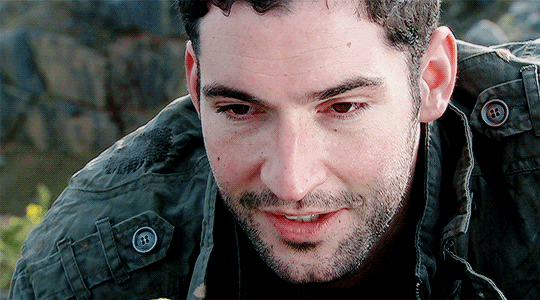#michel demiurgo
Explore tagged Tumblr posts
Note
Oh! Michael, is that… is that you? I didn’t realize there were any more of us down here.
@headofthementalhealthwing
Raguel?
It's been centuries since I last saw you.
...
#michael demiurgos#michael lucifer#michael#rp michael demiurgos#lucifer netflix#michael from lucifer#michel demiurgos#//im pretty sure Mikey would be shocked and wouldny even know how to react-
26 notes
·
View notes
Text
You're welcome.
It's not that I mind all the fun... but Michael has a specific way of making things feel very unsexy.
#//I'M SORRY I COULDN'T HELP-#michael#michel demiurgos#michael from lucifer#michael demiurgos#michael lucifer
13 notes
·
View notes
Text
Tom Ellis as Thomas Milligan in Doctor Who.



Este semidios, maldito por el sexapil, ya haga de villano o héroe, siempre está tan Hot que ... 😈😏






...,¿Quién diría que no a hacerle unos favorcillos?🫦

#tom ellis#tom eddi hot#merlincedrick#Tom Ellis cedrick#lucifer netflix#tom ellis hot#michel demiurgo#heroes villanoy
17 notes
·
View notes
Photo

Here’s Lucifer’s twin brother, Michael, genderbent into a female, she can impregnate others! This is Michelle Demiurgos, like Michael, she has the Soulmate Aspiration and has Jealous, Romantic and Family Oriented as her traits.
8 notes
·
View notes
Text
Michel Foucault- El lenguaje del espacio
Durante siglos, escribir se ha supeditado al tiempo. El relato (real o ficticio) no era la única forma de esta pertenencia, ni la más próxima de lo esencial; incluso es probable que él haya ocultado la profundidad y la ley en el movimiento que parecía manifestarlo mejor. A tal punto que liberándolo del relato, de su orden lineal, del gran juego sintáctico de la concordancia de los tiempos, se creyó que se exoneraba el acto de escribir de su vieja obediencia temporal. En efecto, el rigor del tiempo no se ejercía sobre la escritura por el sesgo de lo que escribía, sino en su espesor mismo, en lo que constituía su ser singular, ese incorporal. Dirigiéndose o no al pasado, sometiéndose al orden de las cronologías o dedicándose a desanudarlo, la escritura estaba presa en una curva fundamental que era la del regreso homérico, pero también la del cumplimiento de las profecías judías. Alejandría, que es nuestro lugar de nacimiento, había prescrito ese círculo a todo el lenguaje occidental; escribir era regresar, era volver al origen, recobrar el primer momento; era estar de nuevo en la mañana. Por ello, la función mítica de la literatura hasta nuestros días; su relación con lo antiguo; el privilegio que concedió a la analogía, así como también, a todas las maravillas de la identidad. Como consecuencia una estructura de repetición que designaba su ser. El siglo xx es quizás la época en la que se desanudan tales parentescos. El retorno nietzscheano clausuró de una vez la curva de la memoria platónica, y Joyce cerró la del relato homérico. Lo que no nos condena al espacio como a la única posibilidad, durante mucho tiempo descuidada, sino que revela que el lenguaje es (o quizás ha llegado a ser) asunto de espacio. Que lo describa o lo recorra no es tampoco el asunto esencial. Y si el espacio es en el lenguaje de hoy la más obsesiva de las metáforas no es porque él ofrezca de aquí en adelante el único recurso sino porque es en el espacio donde el lenguaje se despliega desde el comienzo del juego, se resbala sobre sí mismo, determina sus escogencias, dibuja sus figuras y sus traslaciones. Es en él donde se transporta, donde su ser se “metaforiza”. El desvío, la distancia, el intermediario, la dispersión, la fractura, la diferencia no son los temas de la literatura de hoy sino aquello en lo que el lenguaje nos es dado ahora y viene hasta nosotros: lo que hace que él hable. Estas dimensiones no las ha extraído de las cosas para restituir en sí el analogon y algo así como el modelo verbal. Ellas son comunes a las cosas y a él mismo; el punto ciego de donde nos vienen las cosas y las palabras en el momento en que ellas van a su punto de encuentro. Esta «curva» paradójica, tan diferente del regreso homérico o del cumplimiento de la Promesa, es sin duda por el momento lo impensable de la Literatura. Es decir, lo que la hace posible en los textos donde podemos leerla en la actualidad.* * *La víspera de Roger Laporte se mantiene lo más cerca posible de esta “región” a la vez pálida y temible. Allí es designada como una prueba: peligro y riesgo, abertura que instaura pero que permanece abierta, próxima y alejada. Lo que impone así su inminencia, pero inmediata y desviándose así, no es de ninguna manera el lenguaje, sino un sujeto neutro, “él”, sin rostro, por el cual todo lenguaje es posible. Escribir no es algo posible más que si él no se retira al absoluto de la distancia; pero escribir se hace imposible cuando él se hace amenazante con todo el peso de su extrema proximidad. En este desvío lleno de peligros, no puede haber (como tampoco en el Empédocles de Hölderlin) ni Medio, ni Ley, ni Medida. Pues sólo es dada la distancia y la vigilia que abre los ojos sobre el día que aún no está allí. De un modo luminoso, y absolutamente reservado, este él dice la medida desmesurada de la distancia en vela donde habla el lenguaje. La experiencia relatada por Laporte como el pasado de una prueba es la misma donde se da el lenguaje que la relata; es el pliegue donde el lenguaje redobla la distancia vacía de donde él nos viene y se separa de sí en la proximidad de esa distancia en la cual le corresponde, y sólo a él, vigilar. En este sentido, la obra de Laporte, próxima de Blanchot, piensa lo impensado de la Literatura y se aproxima a su ser por la transparencia de un lenguaje que no busca tanto el juntársele como el acogerlo. * * * Novela adámica, El proceso-verbal es una vigilia también pero a plena luz del mediodía. Extendido en la “diagonal del cielo”, Adam Pollo está en el punto donde las caras del tiempo se repliegan la una sobre la otra. Quizás al comienzo de la novela él es un prófugo de esa prisión donde será encerrado al final; quizás venga del hospital donde él reencuentra en las en últimas paginas la concha de nácar, de pintura blanca y de metal. Y la anciana mujer sin aliento que sube hacia él, con la tierra entera como aureola alrededor de la cabeza es sin duda, en el discurso de la locura, la muchacha joven que al comienzo del texto ha escalado hasta su casa abandonada. Y en este repliegue del tiempo nace un espacio vacío, una distancia no nombrada aún donde se precipita el lenguaje. En la cima de esa distancia que es pendiente, Adam Pollo es como Zarathustra: desciende hacia el mundo, el mar, la ciudad. Y cuando sube hasta su antro, no serán ya el águila y la serpiente, inseparables enemigos, círculo solar, los que lo esperan; será la sucia rata blanca que él destroza a cuchilladas y que manda a podrirse en un sol de espinas. Adam Pollo es un profeta en un sentido singular; no anuncia el Tiempo; habla de esa distancia que lo separa del mundo (del mundo que “le ha salido de la cabeza a fuerza de mirarlo”), y, por el flotamiento de su discurso demente, el mundo refluirá hasta él, como un gran pez que remonta la corriente, se lo tragará y lo mantendrá encerrado por tiempo indefinido e inmóvil en la pieza cuadriculada de un asilo. Encerrado sobre sí mismo, el tiempo se reparte ahora sobre este tablero de barrotes y de sol. Parrilla que es quizás la reja del lenguaje. * * * La obra entera de Claude Ollier es una investigación del espacio común al lenguaje y a las cosas; en apariencia, ejercicio para ajustar a espacios complejos de los paisajes y de las ciudades largas frases pacientes, deshechas, retomadas y retorcidas en los movimientos incluso de una mirada o de una marcha. A decir verdad, la primera novela de Ollier, La puesta en escena, revelaba ya entre el lenguaje y espacio una relación más profunda que la de una descripción o de un relevo; en el círculo dejado en blanco de una región no cartografiado, el relato había hecho nacer un espacio preciso, poblado, sitiado de acontecimientos donde aquél que los describía (haciéndolos nacer) se encontraba comprometido y como perdido; pues el narrador había tenido un “doble” que en ese mismo lugar inexistente hasta él, había sido asesinado por un encadenamiento de hechos idénticos a aquellos que se tramaban en torno a él; aunque este espacio nunca antes descrito no era nombrado, relatado, recorrido paso a paso sino al precio de un redoblamiento asesino; el espacio accedía al lenguaje por un “tartamudeo” que abolía el tiempo. El espacio y el lenguaje nacían juntos en el Mantenimiento del orden, de una oscilación entre una mirada que se veía vigilada y una doble mirada obstinada y muda que lo vigilaba y era sorprendido el vigilante por un juego constante de retrovisión. * * * Verano indio obedece a una estructura octogonal. El eje de las abscisas es el vehículo que con la punta de su trompa corta en dos la extensión de un paisaje, es el paseo a pie o en auto por la ciudad; son los tranvías o los trenes. Por la vertical de las ordenadas está la subida por el flanco de la pirámide, el ascensor en el rascacielo, el belvedere que domina toda la ciudad. Y en el espacio abierto por esas perpendiculares, todos los movimientos compuestos se despliegan: la mirada que gira, aquella que cae sobre la extensión de la ciudad como sobre un plano; la curva del tren aéreo que se lanza por encima de la bahía y luego vuelve a descender hacia los suburbios. Pero además algunos de estos movimientos son prolongados, repercutidos, trasladados o fijados en fotos, en vistas fijas, fragmentos de películas. Pero todos son desdoblados por el ojo que los sigue, los relata o él mismo los realiza. Pues esta mirada no es neutra; da la impresión de dejar las cosas allí donde están; de hecho les “quita una parte”, desprendiéndolas virtualmente de sí mismas en su espesor, para hacerlas entrar en la composición de una película que no existe todavía y para la cual ni siquiera se ha escogido el guión. Son estas “vistas” no decididas pero “para escoger” las que, entre las cosas que ya no existen y la película que no existe aún, forman con el lenguaje la trama del libro. * * * En este nuevo lugar, lo que es percibido abandona su consistencia, se desprende de sí, flota en el espacio y según combinaciones improbables, gana la mirada que los desprende y los anuda, aunque penetre en ellas, se desliza en esa extraña distancia impalpable que separa y une su lugar de nacimiento con su pantalla final. Metido en el avión que lo lleva hacia la realidad de la película (los productores y los autores), como si hubiera entrado en ese delgado espacio, el narrador desaparece con él, con la frágil distancia instaurada por su mirada: el avión cae en una ciénaga que se cierra sobre todas esas cosas vistas en ese espacio “al que se le ha quitado una parte”, dejando por encima de la perfecta superficie ahora en calma sólo flores rojas “no sometidas a ninguna mirada”, y este texto que leemos, lenguaje flotante de un espacio que se engulle con su demiurgo, pero que sigue presente aún y para siempre en todas esas palabras que ya no tienen voz para ser pronunciadas. * * * Este es el poder del lenguaje: él, que está tejido de espacio, lo suscita, se lo da como abertura originaria y le quita una parte para retomarla en sí. Pero de nuevo él está dedicado al espacio: ¿dónde pues podría flotar y posarse sino en este lugar que es la página, con sus líneas y superficie, sino en este volumen que es el libro? Michel Butor en muchas ocasiones ha formulado las leyes y las paradojas de este espacio tan visible que el lenguaje cubre de ordinario sin manifestarlo. La descripción de San Marco no busca restituir en el lenguaje el modelo arquitectural de lo que la mirada puede recorrer. Sino que ella utiliza sistemáticamente y por su propia cuenta todos los espacios de lenguaje que son conexos al edificio de piedra: espacios anteriores que éste restituye (los textos sagrados ilustrados por los frescos), espacios inmediata y materialmente superpuestos a las superficies pintadas (las inscripciones y leyendas), espacios ulteriores que analizan y describen los elementos de la iglesia (comentarios de libros y de guías), espacios vecinos y correlativos que se cuelgan un poco al azar, enganchados por palabras (reflexiones de los turistas que miran), espacios próximos pero cuyas miradas están giradas como para otro lado (fragmentos de diálogos). Estos espacios tienen su lugar propio de inscripción: rollos de manuscritos, superficie de los muros, libros, bandas magnetofónicas que se recortan con tijeras. Y este triple juego (la basílica, los espacios verbales, su lugar de escritura) distribuye sus elementos según un sistema doble: el sentido de la visita (que a su vez es la resultante encabalgada del espacio de la basílica, del caminar del paseante y del movimiento de su mirada) y el que es prescrito por las grandes páginas blancas sobre las cuales Michel Butor hizo imprimir su texto, con bandas de palabras recortadas por la sola ley de las márgenes, otras dispuestas en versículos, otras en columnas. Y esta organización remite quizás a ese otro espacio que es el de la fotografía… Inmensa arquitectura a las órdenes, pero diferente absolutamente de su espacio de piedras y de pinturas, dirigido hacia él, pegándose a él, atravesando sus muros, abriendo la extensión de las palabras encerradas en él, remitiéndole todo un murmullo que le escapa o se le desvía, haciendo surgir con un rigor metódico los juegos del espacio en sus conexiones con las cosas. La “descripción” aquí no es reproducción, sino más bien desciframiento: empresa meticulosa para desencajar ese batiburrillo de lenguajes diversos que son las cosas, para volver a meter cada uno en su lugar natural, y hacer del libro el emplazamiento blanco donde todos, después de la descripción, pueden reencontrar un espacio universal de inscripción. Y sin duda ese es el ser del libro, objeto y lugar de la Literatura. ∗ Publicado en Critique, N° 203, abril de 1964, traducción de Luis Alfonso Palau C. NOTAS R Laporte. La veille , ed. Gallimard, París, 1963. J. M. G. Le Clezio. Le procés-verbal., Gallimard, París, 1963, (trad. cast. El Atestado, Barcelona: Seix Barral, 1964). Claude Ollier, Esté indien, Editions de Minuit, París, 1963. Michel Butor, Descripción de San Marco, ed. Gallimard, París, 1963.
2 notes
·
View notes
Text
Woland sembra il Joker di “Batman” e Ponzio Pilato ascolta i Rolling Stones: sul “Maestro e Margherita” di Bulgakov in scena
Avviso preambolare ai lettori (chiamarlo distico sarebbe eccessivo): la recensione di “Il Maestro e Margherita”, non durerà come lo spettacolo (3 ore con intervallo) ma molto meno.
L’annuncio, piazzato in un “nisiòlo” (lenzuolo piccolo in veneziano) di carta al fianco della biglietteria, anticipa agli spettatori che la mise en scene, compresa di una pausa, terrà la platea in sala per 180 minuti. Tradotto significa che per 3 ore sarà vietato (più o meno) l’accesso ai social media. Qualcuno in fila ha già i primi tiraculi: si vede dalle facce, dalle unghie che si conficcano alla base del pollice, dalle smorfie delle labbra. “Come tre ore?”. Del resto, per chi vive nel minuto o due dei video su Facebook, tre ore sono un’eternità. Eppure…
*
L’aver donato alle dita preziose e capaci di Letizia Russo la trasposizione drammaturgica del testo di poco meno che centenario di Michail Bulgakov (è stata scritto e riscritto più volte tra il 1928 e il 1940) e l’aver affidato all’ottimo Michele Riondino il ruolo delicato e totemistico di Woland (il cattivissimo principe del male, una crasi tra il “Joker” di “Batman” interpretata da Jack Nicholson e un satanello della tradizione terrigna italica) si è rivelata semplicemente vincente. Le due storie difatti – quella dell’arrivo di Woland a Mosca e dell’incontro con una setta che si occupa di magia nera da un lato e la rievocazione degli avvenimenti accaduti a Gerusalemme durante la Pasqua ai tempi di Ponzio Pilato – si intrecciano e si incastrano con rara perfezione, ricamati da un filo musicale apparentemente bizzarro, quello che avvicina le sonorità di Musorgskij a “Simpathy for the devil” dei Rolling Stones (è storia nota che Mick Jagger ebbe in regalo da Marianne Faithfull il libro di Michail Bulgakov e che dopo aver letto ci scrisse la celebre canzone).
*
La scenografia aiuta lo spettatore e gli toglie ogni potenziale dubbio: le vicende avvengono in un bunker, con qualche piccola variazione che tratteggia e definisce le due storie. Ma sono soprattutto i registri sonori e vocali a definire gli spazi e i personaggi, tutti o quasi in cerca di un autore. Viene da sé quindi che la risalita dagli inferi di Woland – demiurgo e capocomico – porta la cricca di burattini, piuttosto caratterizzati e a tratti piacevolmente manieristici, verso la risurrezione: immediato è l’eco che si riverbera sulla città di Mosca, veloce il mutamento delle loro idee, saettante l’odore bramoso di una vita da protagonisti alla luce del sole.
*
I quadri apocrifi della morte di Gesù diventano rappresentazione teatrale. Qui Ponzio Pilato si fa personaggio e soggetto pittorico di Raffaello Sanzio attraverso un lungo scialle rosso vermiglio, qui Gesù (Yesua) diventa teatralmente martire, in uno scontro ideologico che supera i dogmi religiosi più canonici: troppo finto per gli atei, quasi blasfemo per i cattolici, il crocevia individuato dal regista Andrea Baracco si trasforma, con tutte le credenziali e le verità che può dare il teatro, in una risposta non drammaturgica bensì scenica.
Alessandro Carli
L'articolo Woland sembra il Joker di “Batman” e Ponzio Pilato ascolta i Rolling Stones: sul “Maestro e Margherita” di Bulgakov in scena proviene da Pangea.
from pangea.news http://bit.ly/2MphPq0
1 note
·
View note
Text
Oh, but I already did, and I have a lot of questions.

I don't do backgrounds as you can tell.
Back at it again with my favorite boys. Again, as goats.
#michael demiurgos#michael#michael lucifer#lucifer netflix#rp michael demiurgos#michael from lucifer#michel demiurgos#//you're such a good artist I swear
15 notes
·
View notes
Quote
L'ossessione del suicidio è proprio di colui che non può né vivere, né morire e la cui attenzione non si allontana mai da questa duplice impossibilità.
Emile Michel Cioran, “Il funesto demiurgo”
#emile michel cioran#frasi libri#citazioni libri#frasi sulla vita#frasi sulla morte#frasi vita#frasi morte#vivere#morire#frasi adolescenti#frasi adolescenza#frasi tristi#frasi vere#frasi tristezza#frasi dolore#frasi sofferenza#frasi tumblr#tumblr italia#frasi solitudine#frasi amore#frasi sigarette#frasi rap#frasi occhi#frasi coez#frasi gemitaiz#frasi mostro#frasi ghali#frasi fedez#frasi salmo#frasi nitro
557 notes
·
View notes
Note
You need to take a seventh grade English course so you finally learn about figurative language and nonverbal communication, dude. Kisses!! <33
It was a dogshit metaphor. Why a slime ball? Better use the Entomophthora muscae as a metaphor; it's a parasitic fungi that manipulates an insect behavior at its will. It's sounds way more convincing than a fictional object, and you can clearly see the comparison between it's behavior and mine.
#michael demiurgos#michael#michael lucifer#lucifer netflix#rp michael demiurgos#michael from lucifer#michel demiurgos#//I just know Michael loves fungi#//besides#//Michael confusion was my own-
17 notes
·
View notes
Note
Michael es padre, sí…¿Pero en qué tiempo, antes o después de la temporada 5? ¿El bebé es producto de una relación consensuada o de que Sandalphon violó a Michael?
Ahora, imaginemos que los hijos de Michael son gemelos varones. Michael tendrá un ataque al corazón. Imaginó que tratará de ser un mejor padre que su padre, pero pronto él se dará cuenta de que esa vara de medir es muy baja. Ahora, Michael tiene dos opciones: combatir con Karen en la reunión de padres o ser el padre helicóptero- mamá gallina.
Ahora, yo tengo un escenario diferente. Antes de la temporada 1, Ella Lopez todavía está en el convento, ella todavía cree que está loca. Michael descubre que Azrael ha estado visitando a un humano. Michael confronta a su hermana y ella niega todo, solo para pedirle que la ayudé a sacar a ella del convento. Michael acepta solo porque temé que Dios castigué de algún modo a Azrael y porque Azrael le prometió a Michael prestarle su capa de invisibilidad.
Michael conoce a Ella. Ellos se enamoran, pero los gemelos Demiurgos tienen la mala suerte de tener miedo de entablar relaciones. Ellos tiene sexo y…
Azrael lo descubre.
“¡Pero tú la miraste en la ducha!”
“¡Ella tenía doce años y se estaba desangrando!”
“¡Ella tenía la menstruación!”
Michael acepta irse, porque Ella merece a alguien más ( sí, los gemelos tienen baja autoestima). Pero el inconsciente de Michel quiere desesperadamente tener algo de Ella Lopez y así:
Michael observó el huevo. Azrael estaba detrás de él, espada en mano.
“¿Qué es esa cosa,Michael?¡Hermano, la cosa se mueve!”
Del huevo salió un bebé con alas doradas, cabello y ojos oscuros.
“Por la puta madre…”
Michael no registró lo último que dijo Azrael. Se acercó, paso a paso, al ser que había hecho. Al ser que no debería existir. Él la tomó en sus brazos, con cuidado de no tocar sus alas. La bebé se acurrucó contra él, ronroneando, mientras lo miraba a los ojos: los ojos de Ella Lopez.
Okay question, what if it was Michael who fathered a child instead of Amenadiel?
I dunno, let's ask our followers. What do you think?
I would like to think he'd make a very grumpy but ultimately good father. I even hoped that Rory was his, but alas...
49 notes
·
View notes
Link
Andrés Criscaut (Revista Ñ) * El más provocador de los intelectuales franceses reivindica la fuerza política de las microcomunidades como la pareja, la familia y los grupos que buscan "cambiarse a sí mismos". Hay un francés que nació dos veces. En 1987 el joven Michel Onfray de 28 años sobrevive a un infarto que cambiaría radicalmente su relación con la vida y sus placeres. Como una suerte de epifanía laica, este hijo de agricultor y madre empleada doméstica (interno sufriente en un orfelinato católico entre los 10 y 14 años, “donde la única forma de salir o sobrevivir era la lectura”), sigue una dieta estricta que le revela que su cuerpo, y lo que lo conforma y conforta, puede ser también una cuestión filosófica. Tras dar a luz su primer gran éxito El vientre de los filósofos, crítica de la razón dietética, Onfray no deja de cocinar y poner el cuerpo o de escribir y dar la cara, que para el caso es lo mismo. El deseo de ser un volcán, otro de los títulos de su prolífica bibliografía, es también quizás un posible epitafio de su carrera. Filósofo mediatizado, “star” mediatizante, él analiza, provoca, opina y discute sobre casi todo. Detesta los medios “que funcionan a veces como una suerte de guillotina”, pero no duda en ponerse cada vez que puede ante la cámara como un estoico puchimballcon anteojos, en su compromiso “como intelectual que va al encuentro del obrero”. Sus opiniones no reconocen medias tintas. Sobre las recientes elecciones presidenciales ha señalado, por ejemplo: “No fui a votar en primera vuelta porque todo estaba muy bien preparado por el sistema para preservarse a sí mismo. Macron y Le Pen son dos maneras de hacer la misma política, pero a su vez Le Pen es funcional al sistema y juega el rol de ese diablo que necesitan los liberales para demostrar que hay debate, que hay confrontación. Con respecto a Macron, él representa todo lo que detesto, es una suerte de muñeca inflable del capital. Como candidato nos acostumbró a la esquizofrenia, diciendo, por ejemplo, que el colonialismo tuvo su costado positivo y benigno para los colonizados un día y al día siguiente, en Argel que Francia cometió un crimen contra la humanidad durante la colonización del norte de Africa. Por si fuera poco es un servidor del ‘Estado de Maastricht’ (por el tratado que creó a la UE). No por nada hizo su entrada triunfal en su puesta en escena de la victoria con el himno de la Unión Europea, la Oda a la Alegría de Beethoven ¿Y La Marsellesa? Quedará para más tarde, si es que viene”. Excelente escritor, pero por sobre todo hábil contador de historias y demiurgo creador de suspensos, Onfray cultiva en Europa miríadas de seguidores... y detractores. “El filósofo que sacude Francia”, tituló la conocida revista Le Point en tapa. Polémico como buen nietzscheano, egocéntrico como buen hedonista y provocador como buen anarquista, Onfray responde a Ñ atrincherado tras la fortaleza de murallas de libros de su casa en Caen, en la misma Normandía que lo vio nacer en 1959. – Usted rescató la experiencia de las universidades populares de fines del siglo XIX de “democratizar la cultura y acercar gratuitamente el saber a la mayor cantidad posible de personas” y creó una en Caen, donde dicta su cátedra “Contrahistoria de la filosofía”. ¿Cómo fue esa experiencia? ° La idea de la universidad surgió luego de trabajar veinte años en un secundario técnico. Renuncié a la educación pública en 2002 y creé una Universidad Popular donde, con unos amigos, dábamos clases como voluntarios a gente a la que no le pedíamos nada: ni nombre, ni inscripción, ni una carrera, ni dinero, ni nivel de conocimiento previo. La clase está dividida en dos: una exposición previa de una hora, y una segunda en donde desarrollábamos un cometario del público. No quería ni enseñar lo que todos enseñan ni de la manera en que todos lo hacen. Entonces remonté la historia de la filosofía hasta sus bases y me encontré estupefacto cuando constaté que la historia que se enseña en la escuela o en la universidad está hecha de leyendas. Me propuse entonces romper esa leyenda demostrando los intereses ideológicos a los cuales la filosofía obedeció a lo largo del tiempo, como lo hizo por ejemplo en apoyo de la ideología espiritual cristiana. Propuse una historia de la historia de la filosofía. Creí necesitar tres o cuatro años para publicarla, pero ya van trece y llegará a ocupar once volúmenes. – En el quinto, El eudemonismo social (del griego “eudaimonia”: felicidad), afirma que “se ha dicho con frecuencia que en filosofía se retoman los mismos temas desde la más alta Antigüedad y que desde hace veinticinco siglos no ha salido a la luz ninguna cuestión filosófica nueva”. Pero es un aguerrido divulgador. ¿Qué se puede enseñar hoy en filosofía y para qué? ° Quizás hoy moderaría un poco mi propósito ya que creo que la realidad se encuentra cada día más modificada bajo los efectos de una ciencia que se ha vuelto loca, desde que ninguna ética ni ninguna moral pueden detener su estampida. Me enteré hace poco leyendo un artículo de que los científicos lograron implantar en el cerebro de ratones recuerdos de cosas que no fueron vividas por los roedores. Por supuesto que el experimento fue realizado con el pretexto de curar enfermedades degenerativas como el Alzheimer, pero hay también un gran mercado de las industrias farmacéuticas atrás de estos estudios. Quien tiene los medios para crear recuerdos ficticios también dispone de los medios para borrar los que sí han sido vividos. Un gran camino se abre para quienes manipulan a los humanos. Lo posthumano comienza a asomarse y el transhumanismo anuncia a partir de ahora cuestiones filosóficas inéditas.No soy optimista con respecto a que la filosofía vaya a sobrevivir... vamos hacia una sociedad de tipo del Egipto antiguo donde había un puñado de escribas y una masa inculta y sumisa a la casta que detentaba el saber. Por el momento el nihilismo es la verdad del mundo, pero no ha llegado aún a su etapa definitiva. Por eso yo propongo, en esta suerte de naufragio de Titanic que estamos presenciando, vivirlo de pie y morir con elegancia. Es lo que hago en la Universidad Popular o en mi Web TV. – El eudemonismo social se centra en esas “experiencias gregarias que buscaban la felicidad grupal del individuo”: el panóptico liberal, el falansterio fourierista o las comunas socialistas y comunistas, entre otros. Usted dice que “estas experiencias políticas de laboratorio enseñan una lección cardinal para nuestros tiempos posmodernos: una microsociedad permite realizar la revolución aquí y ahora y, sobre todo, en un medio hostil”. ¿En dónde vemos esa herencia? ° En las microcomunidades construidas y vividas por individuos que buscan ante todo cambiarse a sí mismos y no tanto cambiar el orden del mundo (aunque sabemos que Descartes oponía estos dos objetivos). Personalmente pienso que “cambiarse” es contribuir a cambiar el orden del mundo. Creo en la ejemplaridad. Uno es, para sí, el eje en torno al cual se envuelve la vida de los otros. En este orden de ideas, desde que somos dos, ya nos encontramos ante una comunidad. Por eso la pareja es el primer módulo político, al cual le sigue la familia, sea cual sea su composición. Y las relaciones. Es como esos círculos que se forman cuando tiramos una piedra al agua. Esas comunidades nómadas forman esos círculos que son a su vez penetrados por otros. Todo esto lo cuento en mi libro La escultura de sí. Si somos ya capaces de revolucionar nuestra relación con el otro, entonces estamos contribuyendo a esa revolución, la única que cuenta. – ¿Qué rol juegan las revoluciones sociales como la mexicana, la cubana o la experiencia del “socialismo siglo XXI” en el imaginario libertario que relata? ¿Cuál cree que es la causa del divorcio intelectual e ideológico que hoy existe entre Francia y América Latina, y la Argentina en particular? ° Afortunadamente acabo de conocer en una conferencia en México a John Halloway, de quien leí hace diez años su libro Cambiar el mundo sin tomar el poder. Una lección mucho más interesante que la del socialismo armado que hizo correr sangre. Fui una sola vez a la Argentina, hace diez años, y me encantó, y me llamó la atención su francofilia. En ese momento tuve también vergüenza de que nosotros los franceses no estamos a la altura de la atención que ustedes nos dedican. Francia se convirtió en un país pequeño, estrecho y plegado sobre sí mismo, sin visión y sin altura, un país gobernado por enanos que no tienen noción alguna de la historia y que nos hacen pasar vergüenza ante el resto del mundo. Ya ni siquiera traducimos a los filósofos actuales. Cuando volví aquella vez propuse traducir y hacer una antología de filósofos argentinos... A mi editor no le interesó. Desde entonces la situación ha empeorado... el dinero hace la ley y no hay el más mínimo deseo de abrirse culturalmente al mundo. – Su libro Decadencia, de Jesús a Bin Laden, vida y muerte de Occidente ha tenido mucha repercusión. Pese a que se ha escrito mucho sobre eso, ¿por qué esta vez sería la definitiva? ° ¡Es que ya comenzó en 1417 con el descubrimiento del manuscrito de Tito Lucrecio Caro Sobre la naturaleza de las cosas! Ese libro, materialista, atomista, sensualista, empírico, ateo si lo miramos desde el cristianismo, ha sido una formidable caja de herramientas para luchar contra la visión del mundo cristiano. Siempre que el cristianismo estuvo minado en la historia de Occidente, siempre hubo algún discípulo de Lucrecio: el Renacimiento con Erasmo y Montaigne, los libertinos y el iluminismo del siglo XVII, el socialismo del XIX con el marxismo, el psicoanálisis (no sólo la fórmula freudiana), el existencialismo sartreano, la deconstrucción francesa. Todo eso, ayudado por la vanguardia estética del nihilismo, del futurismo, del dadaísmo, etc., precipitó lo que quedaba aún en pie. Esos pensamientos generaron efectos en la historia como el bolchevismo soviético, la respuesta del nacionalsocialismo, el imperio marxista leninista o los fascismos europeos que llevaron desgraciadamente lejos al nihilismo y a la negatividad. Veo difícil que Occidente se recupere del descubrimiento de los campos de la muerte nazis. ¿Qué espiritualidad será lo suficientemente fuerte como para poder digerir ese infierno? – En Decadencia usted también pone como principio del fin de Occidente su silencio en torno a la fatwa contra el escritor Salman Rushdie, decretada por Jomeini en 1989. Tras los atentados recientes que han sufrido Francia y Europa, ¿cuáles serían las rupturas y las continuidades que plantean estos hechos distanciados por 27 años? ° La condena a Rushdie es un punto de ruptura ya que la caída del shah de Irán en 1979 (deseada por los Estados Unidos y sus aliados) y su reemplazo por la revolución islámica del ayatollah Jomeini (que volvió a Teherán desde su exilio en Francia) cambió todo el panorama mundial. El islam laico de Irak, de Libia, de Túnez, de Marruecos o de Argelia pasó a un segundo plano con el Islam teocrático iraní. El ayatollah alcanzó su deseo de hacer escuchar una voz antiamericana y antisionista a nivel planetario. Y Occidente no vio venir nada de eso, incluso colaboró para que así fuera. ¡Pienso incluso en el rol de Michel Foucault con sus elogios a esa revolución bajo el pretexto de que ella aseguraría el retorno de lo espiritual a la política! Cuando Irán condenó a muerte a un escritor británico de origen indio, un europeo digamos, sólo por haber escrito una novela, una ficción, Occidente se encontró desamparado ante esta vuelta de su tradicional relación conflictiva con el Islam. Desgraciadamente los Estados Unidos, junto con Francia, han llevado una política agresiva contra varios países musulmanes. Guerras que han costado la vida de cuatro millones de musulmanes. Nos encontramos presos en un engranaje y sin otra respuesta que una agresión militar inútil para detener el fuego del terrorismo, que ataca donde y cuando quiere. Occidente se encuentra en una mala situación y no veo cómo podrá salir de esta trampa. – 1917-2017, ¿cien años de qué? ¿Una fecha a celebrar o la Revolución Rusa debe ser considerada como otro más de esos “momentos de negatividad necesarios para tener luego más positividad”? ° Cien años de mitología de la alegría de los pueblos, de la realización de la humanidad, del triunfo del proletariado, de la creación de un hombre nuevo, de lucha contra la explotación capitalista, de la abolición de la alienación y, al final de cuentas, cien millones de muertos. Una cifra que es bastante más elevada de la que produjeron los fascismos de extrema derecha, pero que lo políticamente correcto prohíbe decir. El anarquista ruso Voline había dicho tempranamente en su libro La revolución desconocida que la revolución bolchevique fue un golpe de Estado y que Lenin no aseguraría el poder a la autogestión de los soviets sino a la del partido, a su partido, a golpes de asesinatos y gulags. Cuando los marinos del Cronstadt demandan que todo vuelva a los soviets en 1921, Lenin, ya asociado al Ejército Rojo de Trotski, ordena abrir fuego contra ellos... El libertario que soy es antimarxista, antileninista y anti marxista leninista. Más aún, veo en esa falsa revolución así como en el totalitarismo nazi una verdadera dictadura, la firma de Tánatos. Por eso consagro mi vida a la lucha contra toda tanatofilia. Ese es el sentido de mi hedonismo.
0 notes
Text
Me encantan las caras que pone Tom ❤️










Fuente:
https://pin.it/5tWrlUl
#lucifer#tom ellis hot#lucifer morningstar#tom ellis cute#bebida tom ellis#michel demiurgo#deckerstar kiss#tall‚ dark‚ and handsome#lucifer netflix
4 notes
·
View notes
Text
Sette sataniche. Satanismo e culti religiosi. Classificazioni e tipologie dei culti satanici. Classificazione di Michele del Re. Classificazione di Giuseppe Maggioni. Classificazione di Francesco Barresi. Classificazione di Francesco M. Mastronardi

Michele del Re

Francesco Barresi

Vincenzo Maria Mastronardi
Sette sataniche
Satanismo e culti religiosi
Classificazioni e tipologie dei culti satanici
Il satanismo è una realtà che mostra tante sfaccettature quante sono le forme della perversione umana.
Classificazione di Michele del Re
Lo studioso fornisce una classificazione empirica piuttosto articolata degli individui che entrano in contatto con il mondo dell'occulto e del satanismo.
1.Pagani e neopagani: la nostalgia degli déi: quei soggetti che seguono rituali e tradizioni appartenenti al mondo del paganesimo di matrice druidica. Le cerimonie mescolano il satanismo alla stregoneria e soono organizzate seguendo le informazioni riportate sui libri che si occupano della stregoneria in epoca medievale: la caratteristica principale di questi riti è di essere abbastanza "pittoreschi", ma contenenti scarsi elementi di vero satanismo (infatti, i punti di riferimento sono soprattutto le divinità nordiche, come Odino e non Satana). 2. Giocare con Satana: satanisti sperimentali. Il satanismo "sperimentale" o "occasionale", è un pretesto usato da alcuni individui per comportarsi in un certo modo mentre sono in gruppo, in particolare ragazzi alla ricerca di un "mondo migliore" da trovare attraverso il fantasy e il nero satanico. Questa forma può portare ad azioni criminali, soprattutto vandalismo e sacrifici di animali, ed è tipico di adolescenti che si riuniscono in gruppo e che sono caratterizzati da interesse per canzoni dissacratorie, magia, morte e simboli dell'occulto, e dall'ostentazione della loro "ideologia" (uso di un abbigliamento stravagante, presenza di tatuaggi tematici ecc.). 3. Congreghe tradizionali: malvagità ortodossa: satanismo autentico, in cui persone di tutte le età aderiscono a gruppi organizzati che si fondano sull'adorazione di Satana e agiscono con riservatezza, praticando l'attività rituale soprattutto in giorni festivi stabiliti generalmente in corrispondenza di festività sataniche). Fra i crimini principali compiuti da questi gruppi, c'è l'abuso rituale dei bambini. 4. Covi lilithiani: il nero - del - nero. Nell'immaginario satanista, dopo Satana c'è, in una zona d'ombra assoluta, il buio - del - buio. Lilith, che richiede sangue e dolore ancora più di Satana e che rappresenta una specie di antispirito o femmineo del Maligno, un negativo di Satana decisamente più pericoloso. Del Re fa notare che il numero dei membri di una congrega lilithiana deve essere di tre o multipli di tre per rispettare il numero lunare (3x3), sia la triade divina>>. In queste congreghe, la trasgressione deve essere assoluta perché solo il male più perverso soddisfa la dea (corrispondete a Kalì, la dea distruttrice della mitologia indiana). 5. Gruppi satanisti autonomi. Piccoli gruppi indipendenti composti da soggetti che hanno un trascorso criminale e/o sociopatiico, quindi sono persone molto pericolose che giustifcano le loro azioni più seòvagge affermando <<il Diavolo mi ha fatto fare questo>> e non provano sensi di colpa. Diversi serial killer "pseudosatanisti" possono rientrare in questa categoria e vantano un'ispirazione generica a Satana, ma non sono dei satanisti autentici. 6. Mansonisti, ovvero fedeli di un Satana incarnato. Si tratta di gruppi formati da persone di età diverse: soprattutto adolescenti e giovani adulti, che seguono gli "insegnamenti" di un leader carismatico sul modello di Charles Manson. Tale leader può esercitare un influenza molto estesa, anche con l'ausilio di droghe e manipolazione mentale, che porta i seguaci a commettere azioni criminali "in nome del benessere del gruppo". 7. Sciamani isolati e Chiesa degli spiriti: l'ambigua valenza: gli individui che si definiscono "sciamani" sostengono di fungere da canale, da "messaggeri" di entità soprannaturali, che devono trasmettere un messaggio al mondo dei vivi. Questo sciamanesimo spesso, sconfina nel satanico, nel trasgressivo e nel criminoso anche grazie all'amplificazione spettacolare dei mezzi d'informazione. Questa forma si mescola allo spiritismo, dottrina basata sulla fede nell'esistenza e nelle manifestazioni di spiriti, che, nei resoconti sensazionalistici, diventano inevitabilmente sempre "spiriti malvagi" identificandosi nel diavolo.
Classificazione di Giuseppe Maggioni
Maggioni distingue otto tipi di satanisti.
a) Tradizionali da cui ci si reca per ottenere incantesimi di magia nera contro i propri nemici. E' improbabile che adorino il demonio, anche se assumono atteggiamenti demoniaci per meglio sedurre la clientela, e praticano forme di magia cerimoniale, di spiritismo o di culti ispirati alla ritualità afroamericana. b) Psicotici: veri casi da ospedale psichiatrico. c) Selvaggi: nei quali il coktail di droga e satanismo talora produce comportamenti pericolosi. d) Sessuali: che si dedicano aad attività eterosessuali od omosessuali nel quadro di liturgie sataniche. e) Anticristiani: che profanano i riti cristiani, in particolare della messa cattolica. f) Baphomettisti: dal nome dell'idolo Baphomet, attraverso il quale si rivolgono a Satana signore della Terra in contrapposizione a Dio Signore del Cielo. g) Carismatici: per i quali il Dio della Bibbia è il cattivo demiurgo che ha fatto male il mondo, e Satana è l'unica guida che sappia aiutare a fuggire dal mondo corrotto. h) Razionalisti: che celebrano i riti satanici, messe nere comprese, come psicodramma terapeutico per liberarsi negandole violentemente, dalle superstizioni cristiane. E' il caso della Chiesa di Satana di La Vey.
Classificazione di Francesco Barresi
Barresi propone <<una suddivisione basata sulla moralità comportamentale - motivazionale del satanista, nella quale il soggetto viene studiato in relazione al sistema nel quale si trova e alle relazini infragruppali all'interno dell'ambiente di riferimento circostante:
a) Satanismo religioso: tipo di culto satanico per il quale l'adepto si dimostra realmente devoto alla divinità infernale e che in questa crede realmente. b) Satanismo ludico: tipo di culto satanico per il quale l'adepto si accosta più per gioco che per convinzione religiosa. c) Satanismo sessuale: culto satanico esercitato per estrinsecare le proprie pulsioni sessuali. d) Satanismo acido: forma di satanismo tipicamente adolescenziale caratterizzato da assunzione di droghe e alcool. e) Satanismo schizofrenico: con questa espressione s'intende un'adesione al culto satanico di tipo psicopatologico da parte dell'adepto.
Gli adepti del culto satanico possono essere suddivisi ulteriormente in altre tra grandi tipologie a seconda del fatto che professino il satanismo da soli oppure insieme ad altre persone.
a)Satanisti solitari. Si tratta di individui che professano il loro credo intimamente e autonomamente nel segreto delle loro mura domestiche: possono essere classificati come "disorganizzati" in quanto non aderiscono a nessun gruppo satanico. I "satanisti solitari" possono essere suddivisi nelle seguenti sotto categorie:
- Solitari reali: individui realmente soli, a volte senza neanche un gruppo familiare di appartenenza, che non professano esternamente il loro credo. - Deliranti schizofrenici/ebefrenici: individui psicotici gravi che, a seguito di psicosi importanti, immaginano una divinità infernale cui sottomettersi; - Lucidi (adolescenti): giovani che giocano a fare i satanisti, generalmente iniziano a trafficare nella propria camera da letto con formule magiche apprese con leggerezza da libri sull'occulto. - Egotici: satanisti che, in solitudine, professano un culto satanico dispregiativo nei confronti della collettività e fondato sull'accrescimento del proprio potenziale fisico e sessuale; - Professionali: s'intende per "satanisti professionali" i maghi professionisti, detti anche "operatori dell'occulto"; spesso si tratta di individui che si arricchiscono alle spalle dei loro incauti e creduloni clienti.
b) Satanisti intermedi. Categoria unica di transizione dall'una all'altra, di passaggio, cioè, dal satanismo individuale a quello sociale. I soggetti di questo gruppo a volte operano da soli, altre volte in compagnia di qualcuno. c) Satanisti di gruppo: Professano il loro credo in modo sociativo, condividendoli con altri individui per svariati motivi; possono essere classificati come "organizzati" per il fatto che, spesso, sviluppano forti trame sociali con forti vinccoli di adesione.
- Carismatici: individui dotati di forte carisma, fondano loro stessi il gruppo satanico del quale diventano il leader. In questi casi l'adesine degli adepti al gruppo satanico può essere ricondotta alla personalità del carismatico e non già alla sola ideologia dei satanisti; - Parafilici sessuali: individui che sono soliti legittimare le proprie pulsioni - devianze sessuali attraverso l'adesione ad un gruppo di satanisti; - Egotici: satanisti che professano un credo satanico dispregiativo nei confronti della colettività e fondato sull'accrescimento del proprio potenziale fisico e sessuale; - Tossicodipendenti: individui che aderiscono ad un culto satanico per assumere le presunte droghe che avrebbero fornite durante la celebraazzione di particolari riti satanici; - Lucidi misti (adulti/adolescenti): individui che giocano a fare i satanisti: gli adulti lo fanno per goliardia, gli adolescenti per avvicinarsi al mondo del sesso alternativo ed innovativo.
Classificazione di Vincenzo M. Mastronardi
Un'altra classificazione prettamente psicodinamica e non già fenomenologica, secondo Mastronardi, è la seguente e può spingersi fino all'attività omicidiaria:
- Purificatori (con finlità catartica, per espiare le negatività, accumulate dai fedeli e/o dal genere umano). - Ingrazianti la divinità (accordandosene i favori e quindi per trarne il potere necessario per una possibile egemonia sociale). - Propiziiatori di controllo sulla vita e sulla morte e quindi sugli eventi, per conferire e rafforzare l'autostima di cho lo esegue sia per se stesso che agli occhi dei "fedeli". - Orgiastici (preludio e/o culmine di pratiche erotico-religiose di edonismo e fecondità anche con l'uso di droga). - Ringraziamenti la divinità stessa (allo scopo cioè di gratificare la divinità dopo chhe quest'ultima abbia manifestato il proprio intrevneto). - Caratterizzati da volontà di approviggionamento di materiale umano da utilizzare a scopo rituale (tessuti e liquidi biologici, ossa o interi organi per la preparazione di cerimonie, filtri, pozioni amuleti ecc.). - Alla ricerca di accettazione gruppale (abitualmente trattasi di timidi ed isolati alla ricerca di una qualche forma di accettazione interpersonale). - Sensaions' searcher (alla ricerca di forti sensazioni con o senza uso di droga). - Trasgressori transgenerazionali (alla fisiologia ricerca di trasgressione transgenerazionale classica dell'età aadolescenziale, che però talvolta può essere scelta anonimata in una forma di comportamento estremizzato e/o perverso). - Il muti murder (muti="medicina" in lingua zulu) o omicida seriale per guarigione, il quale sulla base delle proprie esperienze personali, sostiene che, tra le popolazioni del corno d'Africa, è in uso un tipo particolare di omicidio seriale che si può chiamare omicidio seriale per guarigione: gli indigeni sono convinti che, uccidendo una vergine, succhiandone il sangue e ripetendo il procedimento a intervalli di tempo regolari, si possa guarire da alcune malattie.
0 notes
Text
Still. You're welcome, Principality Aziraphale.
It's not that I mind all the fun... but Michael has a specific way of making things feel very unsexy.
#michael#michael from lucifer#michael demiurgos#michel demiurgos#michael lucifer#//you can never get enough micharl#//Michea#//Michael
13 notes
·
View notes
Note
"You are just about the handsomest man I ever met."
I'm sorry, I think you've mistaken me for my twin, Sam is the one who likes this type of stuff, not me.
@morningbloodystar
This one is for you.
#michael demiurgos#michael#michael lucifer#lucifer netflix#rp michael demiurgos#michael from lucifer#michel demiurgos
15 notes
·
View notes
Note
Awww, the angel’s allergic to affection and personal growth! Adorable!
knowing the people on this website, and analyzing your way of writing, you can be @ellietheduck or @thedemon-crowley.. .
Probably the last one.
#michael demiurgos#michael#michael lucifer#lucifer netflix#rp michael demiurgos#michael from lucifer#michel demiurgos#//oops#to whoever that sent that anon#Michael hates you now#and if you're Crowley#he hates you even more
10 notes
·
View notes